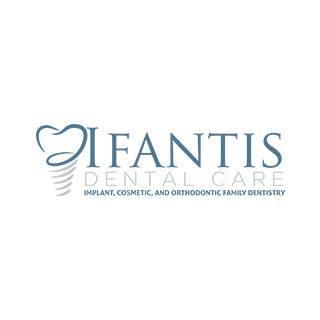Why Preventive Healthcare Is More Important Than Ever

In today’s fast-paced world, health often takes a backseat to work, family responsibilities, and social commitments. Most people only think of healthcare when they fall sick, experience chronic pain, or receive a diagnosis that forces them to act. However, this approach often leads to late interventions, higher treatment costs, and compromised quality of life. This is where preventive healthcare emerges as a vital practice. Preventive healthcare focuses on proactive measures that protect individuals from diseases rather than waiting for illnesses to develop.
With advancements in medical technology, increased awareness, and growing accessibility of healthcare services, preventive measures are no longer a luxury but a necessity. Understanding why preventive healthcare is more important than ever requires looking at its role in reducing disease burden, improving life expectancy, and transforming how we perceive health management.
The Shift from Curative to Preventive Care
Historically, healthcare systems were built around curative models—patients sought medical help only after developing symptoms. While this model is still prevalent in many parts of the world, it has proven inefficient in tackling lifestyle diseases such as diabetes, hypertension, cardiovascular conditions, and certain cancers.
Preventive healthcare shifts the paradigm by emphasizing regular screenings, vaccinations, lifestyle adjustments, and early interventions. The idea is simple: catch potential health issues before they escalate into serious problems. For example, regular cholesterol checks can identify risks of heart disease long before a heart attack occurs. Similarly, screenings like mammograms and colonoscopies save thousands of lives by detecting cancers at treatable stages.
Rising Burden of Lifestyle Diseases
Modern lifestyles have created fertile ground for health issues. Sedentary jobs, poor dietary habits, stress, and lack of physical activity contribute to a surge in non-communicable diseases (NCDs). According to the World Health Organization (WHO), NCDs account for nearly 74% of global deaths annually. The rise of obesity, diabetes, and hypertension illustrates how easily preventable conditions can spiral into global health crises if ignored.
Preventive healthcare addresses these risks head-on. Instead of waiting for complications, individuals who undergo regular checkups can detect abnormalities in blood sugar, cholesterol, or blood pressure at an early stage. Lifestyle guidance, combined with medical advice, significantly reduces the likelihood of developing chronic illnesses.
Economic Benefits of Prevention
Beyond the health advantages, preventive care offers substantial economic benefits. Treating advanced illnesses is significantly more expensive than preventing them. For instance, the cost of managing advanced-stage cancer can be overwhelming compared to the expense of routine screenings.
Governments, insurers, and individuals all benefit financially when preventive healthcare is prioritized. Employers investing in wellness programs often see reduced absenteeism, higher productivity, and lower long-term insurance costs. On a personal level, families save money by avoiding expensive hospitalizations and treatments.
In a world where medical costs are steadily rising, preventive healthcare is not just about staying healthy—it is also about staying financially secure.
Psychological and Emotional Well-Being
Preventive healthcare doesn’t just protect the body; it nurtures the mind as well. Living with undiagnosed conditions or ignoring symptoms often creates anxiety and stress. On the other hand, regular health screenings and proactive care provide peace of mind, knowing that potential risks are being monitored.
Mental health itself is also a key component of preventive care. Stress management, counseling sessions, and mindfulness practices are increasingly recognized as preventive measures against depression, burnout, and anxiety disorders. By including mental health within preventive strategies, individuals can achieve holistic well-being.
Accessibility and Technological Advancements
One of the reasons preventive healthcare is gaining momentum is the rapid improvement in healthcare technology. Telemedicine, wearable devices, and at-home diagnostic kits have made preventive care more accessible than ever before. Today, people can monitor their heart rate, oxygen saturation, and sleep cycles through smartwatches. Mobile apps remind individuals to take medications, schedule screenings, or track calorie intake.
More importantly, many medical tests and screenings can now be conducted in the comfort of one’s home. Services like full body checkup at home have made it possible for patients to undergo comprehensive diagnostics without visiting hospitals or clinics. This level of convenience has encouraged more people to embrace preventive care, especially those who previously avoided checkups due to time constraints, mobility issues, or fear of hospitals.
The Role of Education and Awareness
Despite the benefits, preventive healthcare often faces challenges due to lack of awareness. Many individuals underestimate their risks, believing that diseases are something that happen to others. This false sense of security delays health screenings and lifestyle changes.
Education is therefore critical. Schools, workplaces, and community organizations must actively promote awareness campaigns about the importance of preventive care. Social media platforms, health blogs, and online forums also play a vital role in spreading accurate information. The more people understand the significance of regular checkups and healthy lifestyles, the stronger the culture of prevention becomes.
Preventive Care Across Different Age Groups
Preventive healthcare is not a one-size-fits-all solution; it evolves with age.
-
Children and Adolescents benefit from vaccinations, dental checkups, and growth monitoring. Early detection of developmental disorders ensures timely intervention.
-
Young Adults should focus on screenings for sexually transmitted infections (STIs), mental health checkups, and maintaining active lifestyles.
-
Middle-Aged Adults are at higher risk of hypertension, diabetes, and cholesterol imbalances, making regular blood tests and cardiovascular screenings essential.
-
Seniors require frequent screenings for bone density, vision, hearing, and cognitive health, along with fall-prevention strategies.
By tailoring preventive strategies across age groups, healthcare systems ensure that people remain healthier throughout their lives.
Building a Culture of Prevention
For preventive healthcare to be truly effective, it must move beyond individual responsibility and become a collective cultural shift. Governments need to invest in healthcare infrastructure that emphasizes prevention. Employers should provide wellness programs and incentivize workers to undergo regular screenings. Communities should normalize discussions about health instead of stigmatizing them.
Healthcare providers must also adopt a proactive approach, encouraging patients to schedule preventive visits rather than only responding to illness. By creating a culture where prevention is celebrated, societies can reduce disease burden and improve overall quality of life.
The Future of Preventive Healthcare
As technology and medical science continue to advance, preventive healthcare is likely to become even more integrated into everyday life. Artificial intelligence (AI) will analyze health data to predict risks before symptoms appear. Personalized medicine will tailor prevention strategies to an individual’s genetic profile.
Additionally, wearable devices will evolve from fitness trackers into comprehensive health monitors, capable of detecting arrhythmias, blood sugar fluctuations, or early signs of infections. Preventive healthcare will no longer be an option—it will be a seamless part of daily living.
Conclusion
The importance of preventive healthcare cannot be overstated. It protects individuals from life-threatening diseases, saves money, reduces stress, and improves overall well-being. In an age where lifestyle diseases are rampant and healthcare costs are soaring, prevention offers the most practical and effective path forward.
The old adage “prevention is better than cure” has never been more relevant. By embracing regular screenings, healthier lifestyles, and proactive care, individuals and societies can enjoy longer, healthier, and more fulfilling lives. Preventive healthcare is not just a medical practice; it is an investment in the future of humanity.








